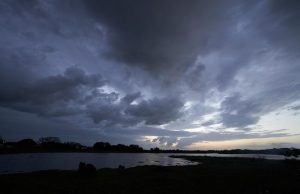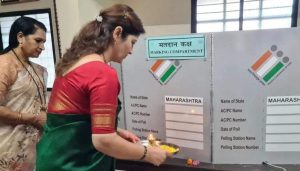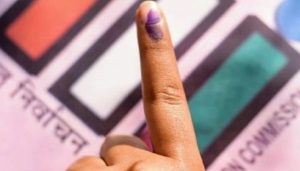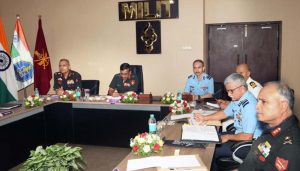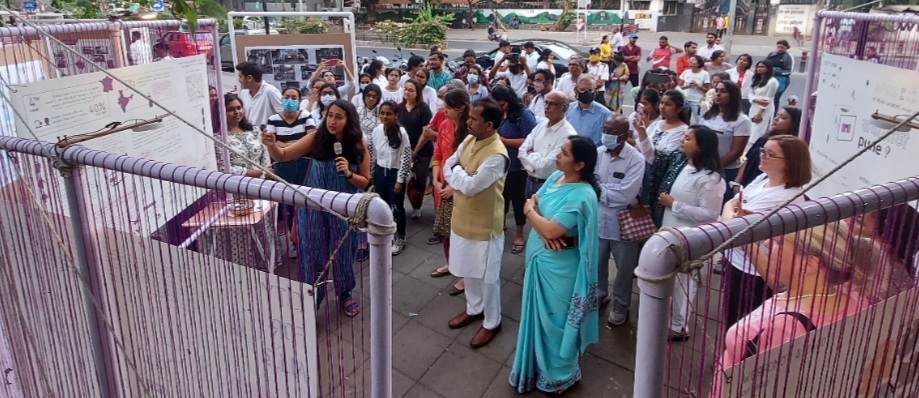
Pune, 24 April 2022: It is very difficult for transgender or members of the LGBTQI community to find safe public spaces in the city of Pune. Pune city needs more gender inclusive spaces and facilities was one of the most vital findings of the project ‘City for All?: Sarvansathi Pune’. This is a public art festival questioning the role of gender in our cities.
The findings of the project were displayed as part of the exhibition on Aundh ITI road, hosted by the program titled Bonjour India.
The ‘City for All?:Sarvansathi Pune’ has been conducted by the Social Design Collab, Genre et Ville, Allaiance Francaise de Pune, PVP College of Architecture, Prasanna Desai Architects (PDA), Centre for Environment Education, MIST LGBTQ Foundation and Arzoo. Along with Pune.
This initiative is a part of the 4th edition of Bonjour India 2022 an artistic, cultural, educational and social initiative organised by the French Cooperation Network in India that includes, the Embassy of France, its cultural department, the French Institute, the network of Alliances Françaises and the Consulates of France. This is the fourth edition of the programme and this year, on the occasion of the 75th year of India’s independence, the long legacy of India-France relationship is being celebrated.
“Architectural students from PVP and professional from PDA visited 6 diverse neighbourhoods from the Pune city with a pin up map. They asked the citizens of those areas to mark the public places they like to visit and share the details like with whom they want to visit and why do they go there,” said Swati Janu, Architect and curator of the project.
The 6 neighbourhoods were Dahanukar Colony, Kasba Peth, Yerwada Slum, Kausar Baug, Aundh Gaon and Koregaon Park. The team representing the project spoke to at least 100 citizens from each neighbourhood. A focussed group discussion was conducted for LGBTQI and Transgender community to know their perspectives about the public spaces to create a dedicated map for them. All the six maps and the photographs of the neighbourhoods were part of the exhibition.
Most of the LGBTQI members who participated in the activity said that they are scared to be at the public spaces with their partners.
“They prefer homes, offices of NGOs or certain parks to hang out with their partners. They also expressed that they feel safe in new parts of Pune such as Baner or Koregaon park rather than the old city,” informed Shyam Konnur, Founder& director of Mist LGBTQ foundation.
From the photographs of the local public spaces like a Katta, Tea Stall or Corners where people can sit or hangout suggested that they were mostly populated by men. “The predominant finding was that very few women or other genders occupy street level public spaces suggesting the gender gap in occupying public spaces in the city,” added Janu.
The citizens who participated were also asked to express what would they like to have in their public spaces. Those from Kausar Baug marked the need for eateries, those from Aundh marked the need for leisurely places, those from Yerawada have asked for temples. People from Kasaba Peth marked the option for the need of greenery the most while, those from Dahanukar Colony marked the need for places to depict history and culture. Participants from the LGBTQI and transgender community have asked for places with peace and beauty.
“The findings from each neighbourhood not only suggested the difference between class and caste of the communities living their but also highlighted the lack of gender equality when it comes to the access and occupation of the public spaces,” said Priyanka Kanakia, architect, PDA and one of the organisers of the project. She concluded that there is a need to create safe and inclusive public spaces for all genders and this project is reflection of that.

